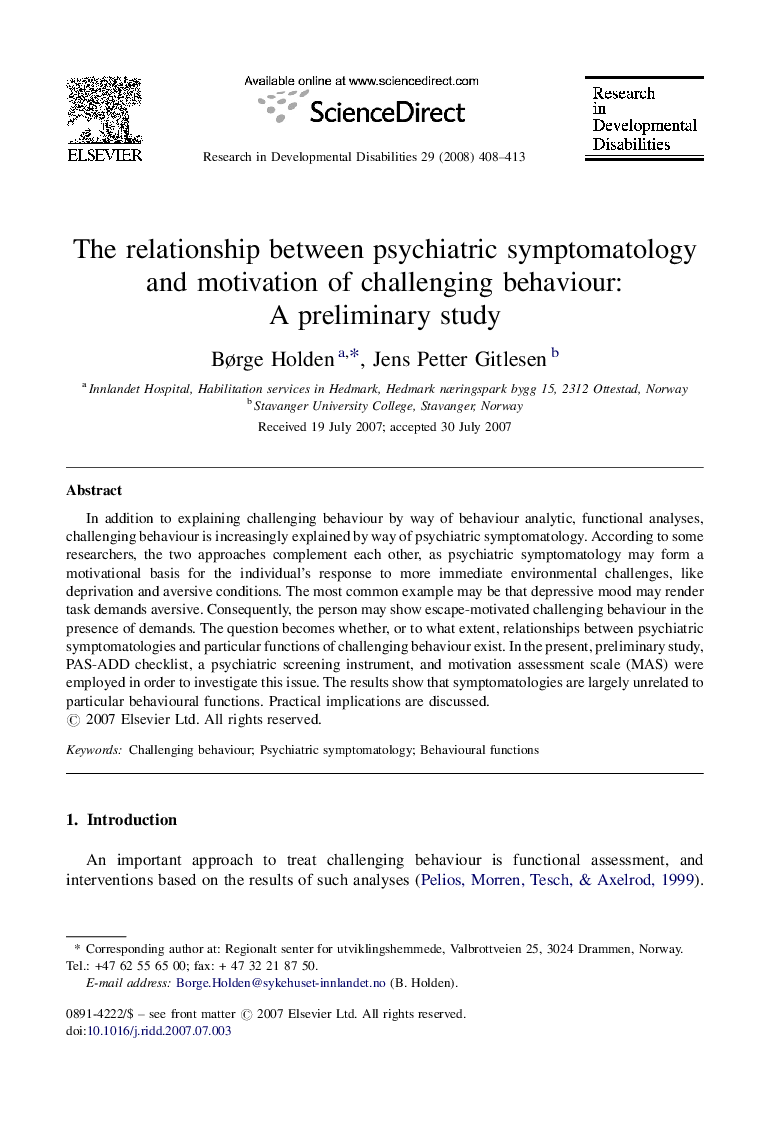| Article ID | Journal | Published Year | Pages | File Type |
|---|---|---|---|---|
| 372333 | Research in Developmental Disabilities | 2008 | 6 Pages |
In addition to explaining challenging behaviour by way of behaviour analytic, functional analyses, challenging behaviour is increasingly explained by way of psychiatric symptomatology. According to some researchers, the two approaches complement each other, as psychiatric symptomatology may form a motivational basis for the individual's response to more immediate environmental challenges, like deprivation and aversive conditions. The most common example may be that depressive mood may render task demands aversive. Consequently, the person may show escape-motivated challenging behaviour in the presence of demands. The question becomes whether, or to what extent, relationships between psychiatric symptomatologies and particular functions of challenging behaviour exist. In the present, preliminary study, PAS-ADD checklist, a psychiatric screening instrument, and motivation assessment scale (MAS) were employed in order to investigate this issue. The results show that symptomatologies are largely unrelated to particular behavioural functions. Practical implications are discussed.
